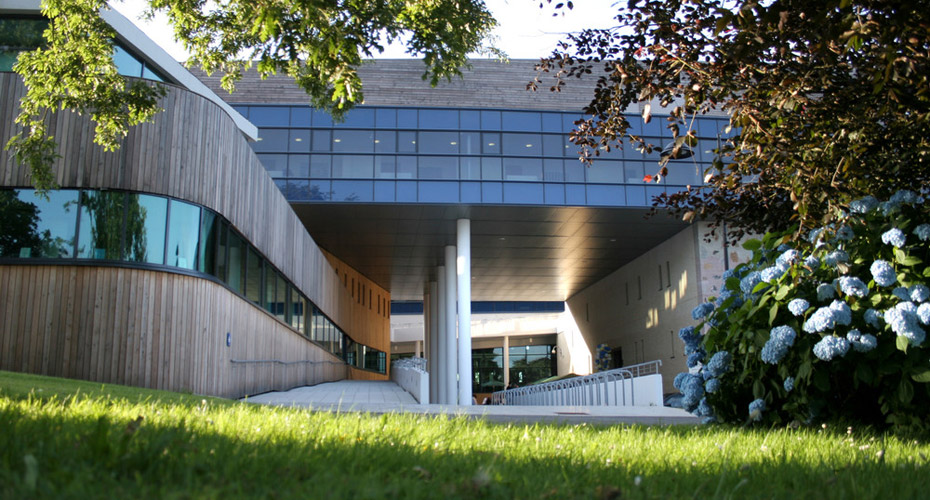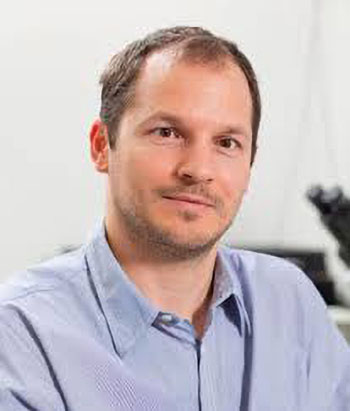
Streatham Campus

Cornwall Campus
Biosciences
About Biosciences at the University of Exeter
We are a rapidly expanding centre of internationally excellent research and education across the entire spectrum of the biological sciences. We provide a stimulating, inspirational and multidisciplinary environment that brings out the very best in our students and staff.
We are located on the University’s campuses in Exeter, Devon (Streatham Campus) and near Falmouth, Cornwall (Penryn Campus), two of the most beautiful areas of the UK. Biosciences on the Cornwall Campus is represented by the Centre for Ecology and Conservation, and contribute to the University’s £30 million Environment and Sustainability Institute. At Streatham, Biosciences extends over four buildings; Geoffrey Pope, Hatherly, the Living Systems Institute and the new BioEconomy Centre.
Research-led teaching and enriched learning opportunities
We are the largest provider of undergraduate life sciences in the UK, contributing to the education of over 1500 students across our three- and four-year BSc and MSci programmes.
We provide an inspirational, demanding and ultimately rewarding study experience at both undergraduate and postgraduate levels, offering unrivalled opportunities to work alongside world-leading researchers, in the lab and in the field, in academia and in industry, at the university and abroad. These opportunities are complemented by a wide-range of extra-curricular activities, such as student societies and career and employability events, in which students can play an active role. The Institution as a whole was awarded GOLD in the recent national Teaching Excellence Framework (TEF) exercise, with Biosciences contributing many of the highlighted case studies.
Our world-leading research
Our academic community produces world-class and ground-breaking research. Consequently, we are one of the foremost research Departments for Biosciences anywhere in the UK, and our global reputation is rising rapidly. The current value of ongoing research within Biosciences is more than £40 million funded from research councils (e.g. BBSRC, NERC, EPSRC, ESRC), charities (e.g. Leverhulme Trust, Wellcome Trust), UK government (e.g. DEFRA, Royal Society, DSTL), the EU Commission, and industry (e.g. Shell Research Ltd, Syngenta).
Our research regularly appears in Science, Nature and leading specialist journals, helping to advance Biosciences as a global endeavour, meanwhile having measurable, positive impact on natural systems and human lifestyles. We maintain multiple external research links which improve our programme of research and enhance the education that we provide. In the most recent Research Excellence Framework, REF 2014, Exeter Biosciences was rated in the top 10 in the UK for world-leading and internationally excellent research (based on the percentage of research categorised as 4* and 3*).
Athena SWAN award holders
Biosciences at our Cornwall and Exeter campuses are now proud holders of Athena SWAN Silver and Athena SWAN Bronze awards, respectively, recognising our commitment to advancing the careers of women in science.
Read more at http://biosciences.exeter.ac.uk/
Our Principal Investigator participating in the EvoCell Program

Professor Gaspar Jekely
Professor of Neuroscience
Overview
My research interests include the structure, function and evolution of neural circuits, the mechanisms of neuromodulation and the evolution of neuronal cell types and nervous systems. My group studies the ciliated larvae of the marine annelid Platynereis and other marine organisms.
Qualifications
1999 Ph.D. in Genetics, Eötvös Loránd University, Budapest, Hungary
1995 Diploma in Biology and Genetics, Eötvös Loránd University, Budapest, Hungary
Career
2017- Professor of Neuroscience, Living Systems Institute, University of Exeter
2017- Associate Director for Research & Impact Delivery, Living Systems Institute, University of Exeter
2007-2017 Max Planck Research Group Leader, Max Planck Institute for Developmental Biology, Tübingen
2004-2007 FEBS Postdoctoral fellow, European Molecular Biology Laboratory, Heidelberg, Germany, Detlev Arendt’s laboratory
2003 Junior fellow at the Collegium Budapest, Institute for Advanced Study, Budapest, Hungary
2000-2003 EMBO Postdoctoral fellow, European Molecular Biology Laboratory, Heidelberg, Germany, Pernille Rørth’s laboratory

